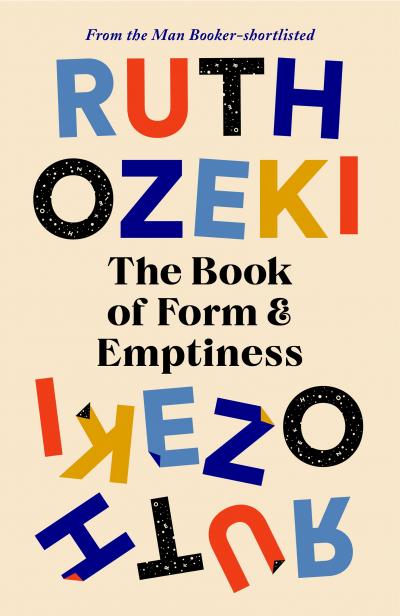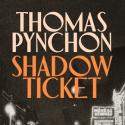“Form is emptiness, emptiness is form.” Ruth Ozeki’s latest novel takes its name from a Buddhist heart sutra that meditates on reality and questions of human existence. It’s a big question for a big book. A Zen priest as well as a teacher, writer, and filmmaker, Ozeki tackles her subject on a series of meta-levels, which make this 500-pager fascinatingly complex, if also at times a bit overwhelming.
The story begins with the death of Kenji Oh, a tragicomic accident that leaves his widow, Annabelle, and their son, Benny, stunned. Kenji leaves behind him a trail of trauma, which manifests in conflicting ways in the household he has left behind. Benny becomes the protagonist of our version of the story, interspersed with Benny’s snippets of commentary on the way his life is being narrated. The voice of the omniscient narrator in this instance is the book itself, which at the beginning of each chapter and throughout, comments on the way Benny’s story is being told. Benny expresses shock at the details he's unaware of; the book reminds him that all the information is pertinent to him as the central character of this particular novel. The book also references the mythology behind the world Ozeki has created, where books tell the stories themselves and carry this knowledge through centuries. It is noted throughout that every character is the protagonist of their own story, and each book is told, read and interpreted in a multitude of ways.
 The world that Benny and Annabelle live in is fractured and constantly shifting. As a response to the trauma, Benny begins hearing the voices of objects around him, all of which have their own journeys that have brought them to where they lie now. Benny stabs himself with scissors at school because the scissors command him to. His dad’s ashes talk to him softly from their box. Even the food in their fridge whines to him. His whole world has transformed from quiet orderliness into noisy chaos. His coping strategies involve skipping school to hide in the public library, wearing noise-cancelling headphones, and obsessively tidying to keep the objects from shouting too loudly. Benny’s autistic tendencies are never explicitly named as such, but the way his neurodiversity impacts on his life – both in frustrating ways where he is misunderstood, and in positive ways where his perspective is celebrated – is explored carefully and confidently throughout the novel.
The world that Benny and Annabelle live in is fractured and constantly shifting. As a response to the trauma, Benny begins hearing the voices of objects around him, all of which have their own journeys that have brought them to where they lie now. Benny stabs himself with scissors at school because the scissors command him to. His dad’s ashes talk to him softly from their box. Even the food in their fridge whines to him. His whole world has transformed from quiet orderliness into noisy chaos. His coping strategies involve skipping school to hide in the public library, wearing noise-cancelling headphones, and obsessively tidying to keep the objects from shouting too loudly. Benny’s autistic tendencies are never explicitly named as such, but the way his neurodiversity impacts on his life – both in frustrating ways where he is misunderstood, and in positive ways where his perspective is celebrated – is explored carefully and confidently throughout the novel.
Annabelle’s response to losing her partner is to hoard. We learn that Kenji kept their household in working order: he took out the garbage, filled the fridge with groceries, and cooked meals. Without him, Annabelle becomes emotionally detached from everyday tasks and emotionally bound to all objects that bring her even the faintest of joy via distant memories.
As Benny begins to distance himself from his mother and their noisy home, he finds himself taken in by an unlikely group of friends: an older teenage girl and her non-binary ferret, and a Slovak poet with a drinking problem who can also hear the voices Benny is so wary of.
Annabelle, meanwhile, becomes withdrawn. Distanced from her team at work, she struggles to keep her old friends and is unable to make new ones. Their opposing strategies for processing grief are part of a commentary Ozeki makes on communication and the power of the word. Fittingly, it’s a librarian who pulls them up from rock bottom and sets them on the right track again.
So much remains unspoken between Ozeki’s characters, even between minor figures like the landlady and her son. This becomes a powerful thread, with Ozeki interrogating the power of the spoken versus the written word. Benny is constantly questioning whether he can share the thoughts he has without fear of punishment or medication. Annabelle represses her thoughts while alone, leading to verbal explosions in front of Benny. The reader becomes drawn to these people, mired in emotional turmoil, which continues a theme from Ozeki’s earlier books. Ozeki’s Booker prize-shortlisted A Tale for the Time Being (2013) centred on the effects of the Japanese tsunami in 2001. That natural disaster is also present here, a wave of destruction analogous to the ongoing waves of grief that propel Annabelle’s hoarding and Benny’s disassociation. The years-long consequences of the tsunami ripple on.
The plot is slow-moving, despite the high page count. Ozeki’s characters float along, anchored by occasional real-world references. Still, it seems as if the slowness of the story is a commentary on the way we read now. The characters are constantly being tugged between their inner thoughts, which move at varying speeds, and the noise and confusion of the outside world. Perhaps the Zen approach is at work here, encouraging us to read the long novel carefully, mindfully.
Even if I wasn’t convinced by the device of a self-narrating book, or the nested-story of Annabelle’s quest for a Zen house, the strengths of Ozeki’s writing make The Book of Form and Emptiness rich with insight and deserving of a re-read. Ozeki’s talent for creating deeply realised characters may have resulted in a novel that is too long and too slow, but it has also created gorgeously readable prose. As readers, we become more sensitive as the book unfolds: Benny learns to prioritise the voices he can hear; we begin to wonder which ones we have been ignoring. Ozeki has written an inventive, moving book, whose form is certainly interesting. It is far from empty.
- The Book of Form and Emptiness by Ruth Ozeki (Canongate, £18.99)
- More book reviews on theartsdesk















Add comment